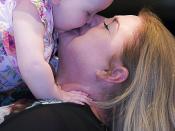The labour market participation of women with very young children has seen an unprecedented increase in Western societies in recent decades (Berger, Hill &Waldfogel, 2005). The percentage of women in the work force less than one year after childbirth rose from 24 percent in 1979 to 67 percent in 1996 (Dench, Aston, Evans, et al, 2002). It is reasonable, then, to conclude that the behaviour for women with a child less than a year old has shifted from the norm of non-employment to employment in a period of less than 20 years. Therefore, the issue of how early maternal employment influences children's development is a matter of social interest as well as individual concern for many mothers. Although research has looked into the impact of maternal employment on children (James-Burdumy, 2005; Ruhm, 2004; Waldfogel, Han & Brooks-Gunn, 2002), little consensus has been reached. Several researchers have concluded that early maternal employment, defined as employment during a child's first year of life, is related to poorer outcomes later in childhood, and specifically poorer cognitive outcomes (Barnett, 1998; Belsky, 2001).
Why this should be the case, however, is seldom addressed directly, let alone explained. The most fundamental question that is addressed by all studies is whether any significant variable of early maternal employment can be identified.
The consequences of early maternal employment may vary in relation to different maternal and familial characteristics (Singer, Fuller, Keiley, et al, 1998). The estimation of a universal average effect on all children of working mothers, therefore, may conceal the fact that specific groups of children could be particularly adversely affected when their mothers work. A number of potential risk factors have been explored in the literature. This paper will focus on the findings of some of the most extensively tested hypotheses and will conclude with...


